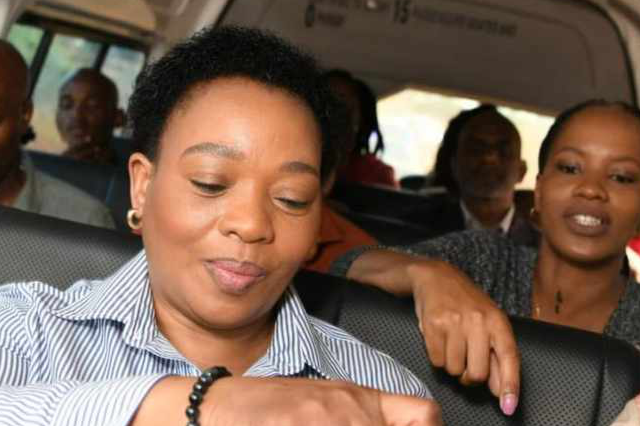Cape Town – KwaZulu-Natal premier Nomusa Dube-Ncube and various provincial MECs parked their expensive vehicles and embarked on a minibus taxi ride in various parts of Ulundi, as the province, marked its Public Transport Day on Tuesday.
The premier said the aim for the day was to promote a safe, efficient and reliable public transport system.
However, the premier and her delegation seemed to have missed the mark on safety, judging by their social media images and video.
“Today is a very important day where we are observing safe public transport day,” said Dube-Ncube.
She detailed events of the day from her taxi ride – from engaging commuters to witnessing transport officials conducting roadblocks, and checking the drivers’ driving documents as well as the condition of their vehicles.
She said that there was excitement about good cooperation between the government and the leadership of the transport system.
KwaZulu-Natal Premier Nomusa Dube-Ncube together with @KZNTransport MEC Sipho Hlomuka and @Santacokzn Chairman Mr Boy Zondi in a taxi from Danny Dalton to Ulundi to promote public transport. #OTM #RoadSafety #GrowingKZNTogether pic.twitter.com/jeK3oGkIYT
— KZN Provincial Gov (@kzngov) October 18, 2022
“We are working toward making a cashless… public transport system where people are going to be able to ride… whether it’s a bus or taxi you only produce a card to ride that bus. And it’s going to promote again efficiency but also it’s going to promote safety for our passengers in that they would not need to be carrying a lot of cash if they’re taking a number of buses or taxi,” she said, making no mention of the importance of safety belts, as road safety authority often advised.
In the pictures and videos shared on the KZN provincial government’s social media platforms, the premier and other officials could be seen at a local taxi rank where they got to experience what most South Africans who used public transport experienced on a daily basis.
The officials checked the condition of the taxis, queued in a line, and counted money in the taxi, but not a single one of them wore a seatbelt, except the driver.
According to the government’s own stipulated safety requirements for minibus taxi operators in South Africa, it was compulsory for each seat in a minibus taxi to be fitted with a seatbelt in South Africa, reported IOL.
The report said the country had one of the worst road fatality statistics in the world, with about 12 000 people dying each year as a result of road crashes.
KZN government spokesperson was yet to respond to why the members of the provincial executive did not wear seatbelts, the report said.


